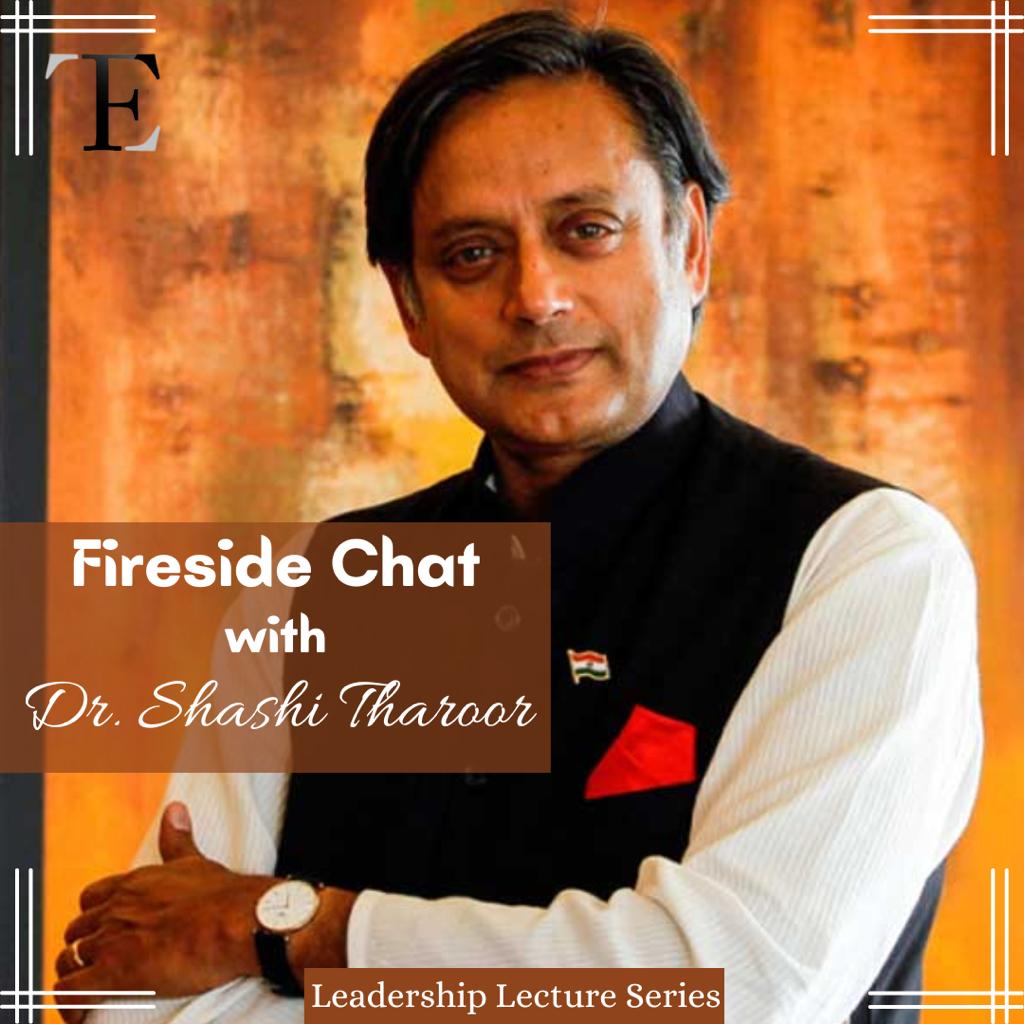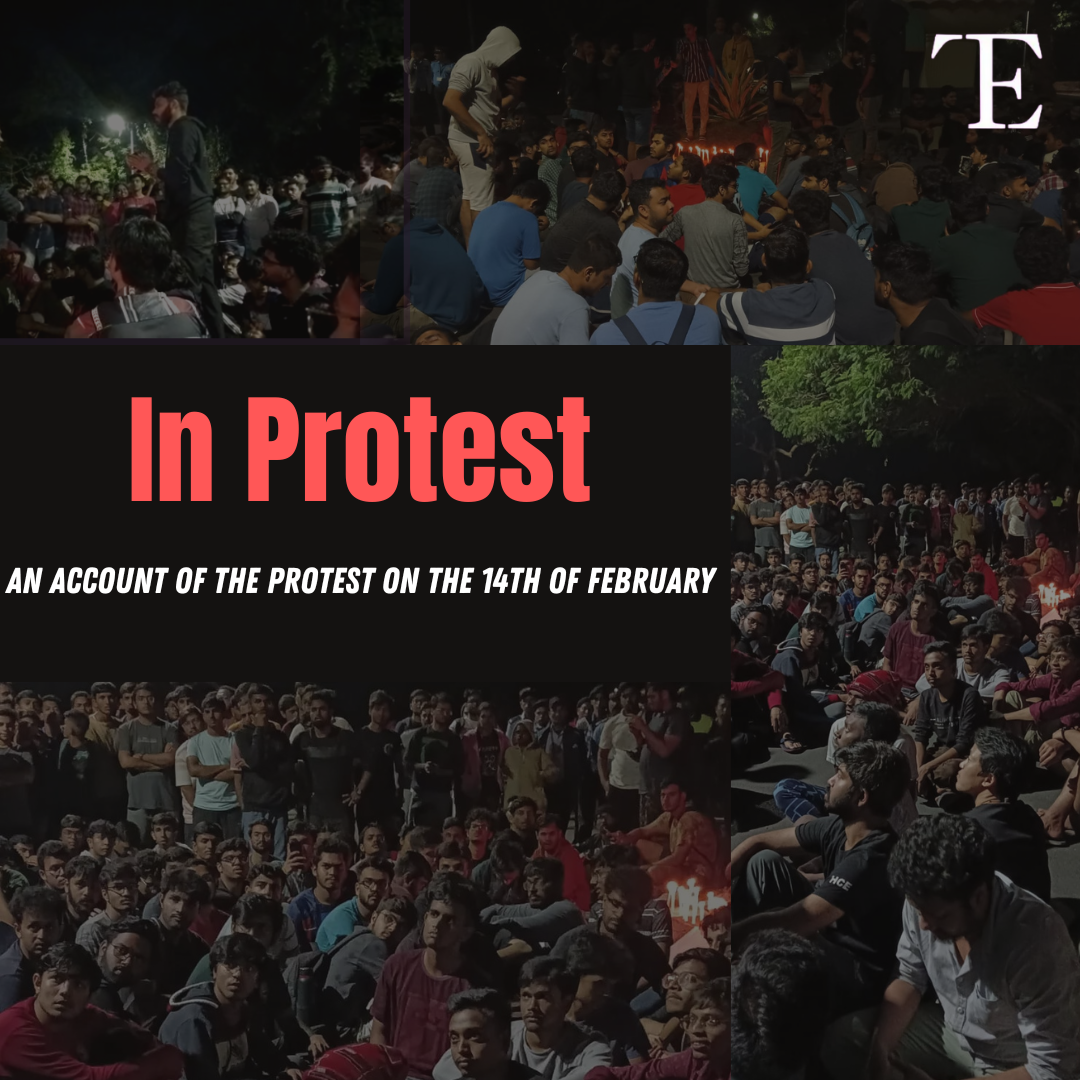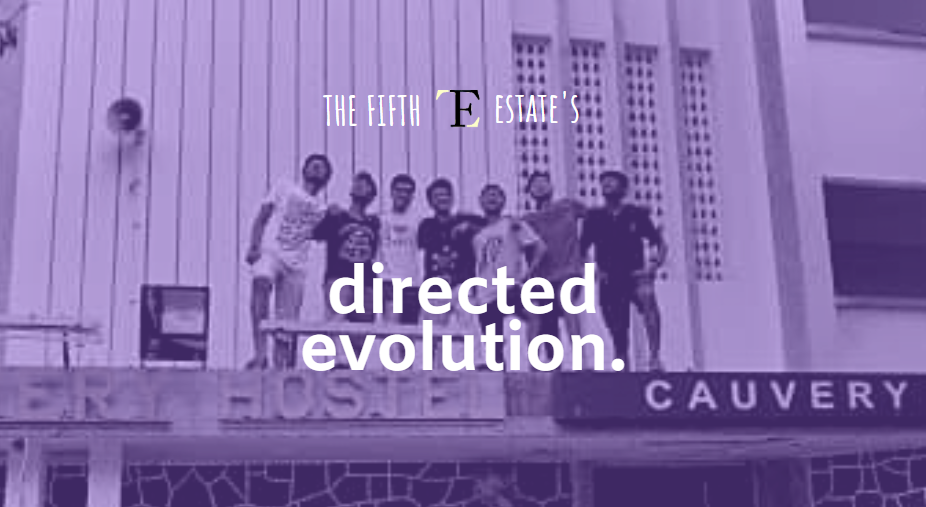On October 6, the institute witnessed an enriching interview with Dr. Shashi Tharoor, a former civil servant, politician, public intellectual, author, and MP. He graced the institution as a part of the Leadership Lecture Series fireside chat.
Dr. Tharoor entered the dais alongside Prof. Mahesh Panchagnula, Dean of Alumni and Corporate Relations, who was the moderator of the evening. Prof. Mahesh initiated the session with a quick list of Dr. Tharoor’s lifelong achievements, including his tenure at the UN, his political and civil work as an MP for Thiruvananthapuram as an author, and his run for the Indian National Congress Presidency Elections. His first question revolved around Dr. Tharoor’s life as a Ph.D. student, for which Dr. Tharoor gave a brief rundown of his academic life as a Ph.D. at the Fletcher School of Law and Diplomacy in International Relations and Policy. He said that he undertook his central thesis on the Making of Indian Foreign Policy and explained the methods that he took such as interviewing Indira Gandhi and her foreign ministers for two hours regarding the paper; using various theoretical terms, and submitting a six-hundred-page paper in eight months while getting married at twenty-one. Completing a PhD (and two more degrees) at twenty-one might seem like Dr Tharoor was stretching the truth but he accredited this feat to some of the ‘obscure’ provisions in the academic rules and the desperation to finish his education before his scholarship ran out. However, he doesn’t recommend us rushing into PhDs (a collective sigh of relief is heard in the audience) and hopes that we savor the joys of life.

As Dr. Tharoor mentioned his rather quick turnaround (a weekend!) from doctoral student to employment at the UN right after his education, the interview moved on to the role of the UN in the present political situation. While Dr Tharoor didn’t completely reject the notion that the UN is ‘toothless’, he emphasizes on the fact that the UN is simply an international forum and not a supranational government. He stated that the UN was created to mitigate disasters instead of creating a haven for countries; mentioning that if the key governments in the UN cannot agree on an issue, the UN will become ineffective as an international body. India’s motion for a permanent seat at the UNSC might take longer than once expected but the peacekeeping efforts made by India (as a non-permanent member) of the UNSC were significant. He concluded by saying that even though the charter has not expanded, the process has become extensive enough to pursue diplomatic solutions to pressing global problems.
We then moved on to the topic of politics and specifically about the history of his political life and his calling for politics. Dr Tharoor expressed his lifelong interest in politics, starting from his job at the UN, where he wanted to pursue politics after his tenure. He was always cognizant of the political happenings in India (which was not easy considering this was pre-internet) and helped foreign ministers and prime ministers of India in consultation services through his job at the UN. He also mentioned his bewilderment towards Indian politics when he entered Indian politics, especially during election time since he had never voted or experienced an Indian election process, saying that elections are one of his most exhausting yet remarkable experiences. On listening to Dr. Tharoor’s insights, Prof. Mahesh asked Dr. Tharoor to encourage IITians into politics. Dr. Tharoor advised pursuing politics since it affects every citizen. However, he also offered the students to secure a stable job first before getting into politics since politics does not provide stable income, correlating the cause of corruption in politicians with the low-earning potential of ‘honest’ politics. He also suggested that students must be aware of the importance of politics even if they do not actively participate in electoral politics as a career.
A criticism that follows Dr Tharoor throughout his career, as pointed out by Prof Mahesh, is the apparent lack of engagement with local constituency voters, given his international education and work experience. Dr Tharoor distanced himself from the idea of being an arm-chaired bureaucrat sitting in an air-conditioned room and instead immersed himself in the idea of earning the vote and the trust of the people of Trivandrum.
The conversation moved on to the topic of history and archiving history through writing and circulating them in academic circles. Dr. Tharoor stated that the empathetic, forgiving nature of our country might have forgotten us to teach our children about the ugly truths of British colonialism. The estimated loss caused by the British was nearly forty-five trillion pounds and reaffirms the need for reparations. This response was followed by a question on how to preserve the ancient, pre-colonial history and culture. Dr. Tharoor replied to celebrate India’s history with the correct facts and not based on narratives. Nurturing the future to become active, caring citizens is important and he lauded IITM for educating the future of India, marking the end of the session between Prof. Mahesh and Dr. Tharoor. The first question was regarding guidelines for India’s brightest minds to follow to achieve greatness, for which Dr. Tharoor provided three points: Be persistent, find who you are, and be the best in it. The next question involved the role of technology in International Relations, for which Dr. Tharoor listed various areas where IR uses technology, such as warfare and geopolitics, mentioning the use of Zoom and other webcam apps (which he jokingly stated rendered ambassadors nearly useless). The follow-up question was light-hearted, asking Dr. Tharoor to introduce new words to the insti audience. In an ironic turn of events, Dr. Tharoor requested everyone to use common words and not whimsical ones to confuse people.
The next question concerned the “Brain Drain” in India and how to mitigate it. Dr. Tharoor answered the question by first explaining the definition of the term and countered that after the 90s, the brain drain reversed due to the increase in the opportunities and investments in India. The last question talked about Dr. Tharoor’s college life and his own college experiences. He listed various clubs and associations, including an active participant in the Shakespeare Society and the founder of the First Quiz Club in India at Stephen’s College. He said that extracurricular activities are an essential part of college life and advised the crowd of students to participate in various extracurricular activities, concluding the session with a funny story involving an IITian and a frog. The lecture concluded and Dr. Tharoor was honored by the institute with a shawl and memorabilia. The session was undoubtedly one of the most dynamic lecture series the institute has ever experienced because of Dr. Tharoor’s intellect, wit, and debonair charm.
“Kiss the frog” – he advised!
Link to video interview: https://youtu.be/1wPu2j49apI




